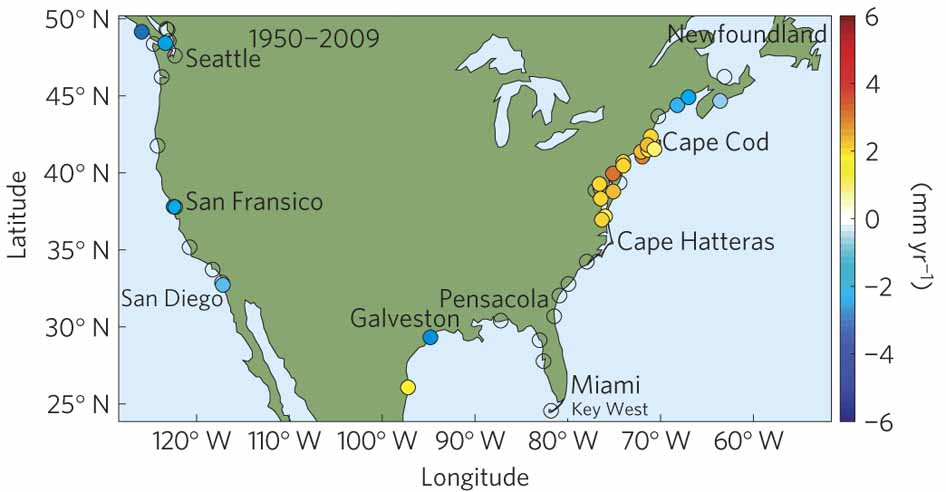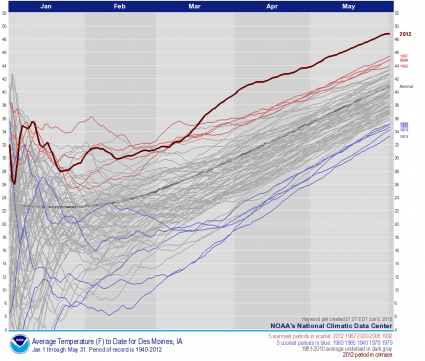 The lip of the world ocean as seem from Rosemary Beach, Florida
The lip of the world ocean as seem from Rosemary Beach, Florida
THE OCEAN
Climate change, global warming, or whatever you call it, humans will likely adapt. We always have. (I won’t mention conflict and population reduction. Oh, I just did.) In Colorado, as the climate warms, there will be less snow for winter sports but more land conducive to growing grapes. Loose some, win some.
Unfortunately, it’s never that simple. We are not the only ones affected. We know we are loosing many of our great species, such as tigers and polar bears, which our children’s children will never see in the wild. Of course, most of us have never seen them in the wild. But just knowing they are there, somehow confirms who we are. We can’t be that destructive, right?
As some species disappear, others will thrive, for example, marmots. But so will mosquitoes, ticks, rodents and jellyfish. Lacey Johnson of Scientific American writes:
Imagine a planet where jellyfish rule the seas, giant rodents roam the mountains and swarms of insects blur everything in sight.
None of these scenarios are appealing, but let’s focus on jellyfish. Their proliferation is a sign many ocean species are not doing well and the reason appears to be ocean acidification. Lacey Johnson:
Jellyfish populations are also suspected to be swelling because of climate change. In recent years, the creatures have been clogging the nets of fishermen, stinging record numbers of beachgoers and blocking the water intake lines of power plants in at least three countries. Some scientists are linking the phenomenon to warmer waters and ocean acidification caused by high levels of carbon dioxide in the atmosphere.
Ocean acidification will also short-circuit the nervous system of some sea creatures:
Based on several years of observations of how baby coral fishes react to an environment with high levels of dissolved CO2, researchers have found that elevated acidity levels directly interfere with fish neurotransmitter functions, impeding their ability to hear, smell, turn and evade predators.
What effect will ocean acidity have on biodiversity? Researchers analysing biodiversity around sites where CO2 from volcanic activity seeps out of the ocean floor are providing a clue:
Directly above these CO2 seeps, pH plummets to at least 7.8, a value that is expected to occur widely by 2100 and that is substantially lower than the normal level for the area, 8.1. These sites offer a preview of what may happen to seafloor ecosystems as CO2 levels continue to rise, causing ocean water pH to drop. Species diversity was reduced by 30%.
Wait. Are they saying a reduction of ocean species by almost 1/3 in about 90 years??
GOOD NEWS
Fortunately, creative activity is occurring throughout the world that may stem this unfavorable prognosis. Hey, even some banks are taking action. According to a recent article on the Environmental News Network:
On behalf of 92 pension funds, asset managers, insurers and banks, the Carbon Disclosure Project (CDP), which holds the world's largest collection of self-reported corporate environmental data, has sent letters to the CEOs of 415 of the world’s largest public companies calling for cost-effective management and reductions of their carbon emissions.
Furthermore,
The largest new signatories include Spain's Banco Santander, Banesto and BBVA from the banking sector, fund manager Henderson and APG the asset manager. There is also a significant number of new signatories in Australia, which passed its Clean Energy Act in November last year, taking the group’s combined assets to over US$10 trillion.
For a frequent dose of progress on the environmental front, try EcoGeek, CleanTechnica, or Grist.
DARK CHOCOLATE
OK. That, was a rough start to Sunday Paleo. Maybe you have given some thought to what your role will be in creating a new future. So, it's time to cheer up.
I am told that one of the answers given by Siri to the question “What is the secret of life?” is: “All available current evidence points to chocolate.” Yes, I know, chocolate was not consumed in the Paleolithic; think of it as Paleo informed by modern knowledge.
Marks Sisson recently posted a great summary on the benefits of chocolate. Here, with a bit of tweaking, is his list. Go to his site for the full flavor.
- Dark chocolate contains healthy fats.
- Dark chocolate contains lots of polyphenols, particularly flavanols.
- Dark chocolate lowers blood pressure.
- Dark chocolate may lower risk of cardiovascular disease.
- Dark chocolate reduces insulin resistance.
- Dark chocolate may improve less severe forms of fatty liver.
- Dark chocolate increases resistance to UV damage.
You are now ready to pick up some dark chocolate. But which brand? The NorthWest CaveGirls recently tested six dark chocolates:
“Although we brought 12 bars of chocolate, we were only able to taste 6, because – believe it or not- we were chocolated out after that. Take a look and see which ones won the taste test.”
PALEO RECIPES
Finally, looking for something more substantial to cook? Try these recipes:
Related Post
 Sunday, August 26, 2012 at 07:08PM
Sunday, August 26, 2012 at 07:08PM 






